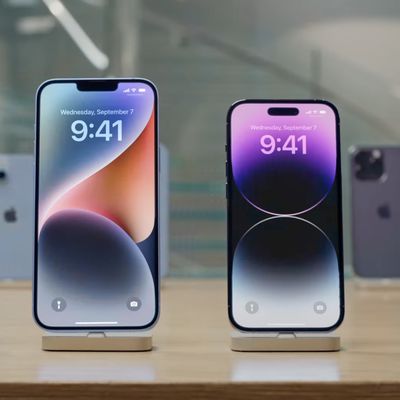![]() Apple has implemented a series of short- and long-term defenses to its iMessage protocol after several issues were discovered by a team of researchers at Johns Hopkins University, according to a report published today (via PatentlyApple).
Apple has implemented a series of short- and long-term defenses to its iMessage protocol after several issues were discovered by a team of researchers at Johns Hopkins University, according to a report published today (via PatentlyApple).
This attack is different to the one Johns Hopkins researchers discovered in March, which allowed an attacker to decrypt photos and videos sent over iMessage.
The technical paper details how another method known as a "ciphertext attack" allowed them to retrospectively decrypt certain types of payloads and attachments when either the sender or receiver is still online.
The scenario requires that the attacker intercepts messages using stolen TLS certificates or by gaining access to Apple's servers. While the attack takes a high level of technical expertise to be successful, the researchers note that it would be well within the means of state-sponsored actors.
Overall, our determination is that while iMessage’s end-to-end encryption protocol is an improvement over systems that use encryption on network traffic only (e.g., Google Hangouts), messages sent through iMessage may not be secure against sophisticated adversaries.
The team also discovered that Apple doesn't rotate encryption keys at regular intervals, in the way that modern encryption protocols such as OTR and Signal do. This means that the same attack can be used on iMessage historical data, which is often backed up inside iCloud. In theory, law enforcement could issue a court order forcing Apple to provide access to their servers and then use the attack to decrypt the data.
The researchers believe the attack could also be used on other protocols that use the same encryption format, such as Apple's Handoff feature, which transfers data between devices via Bluetooth. OpenPGP encryption (as implemented by GnuPGP) may be vulnerable to similar attacks when used in instant messaging applications, the paper noted.
Apple was notified of the issue as early as November 2015 and patched the iMessage protocol in iOS 9.3 and OS X 10.11.4 as a result. Since that time, the company has been pushing out further mitigations recommended by the researchers through monthly updates to several of its products.
However, the team's long-term recommendation is that Apple should replace the iMessage encryption mechanism with one that eliminates weaknesses in the protocol's core distribution mechanism.
The paper detailing the security issue is called Dancing on the Lip of the Volcano: Chosen Ciphertext Attacks on Apple iMessage, and was published as part of the USENIX Security Symposium, which took place in Austin, Texas. You can read the full paper here.




















